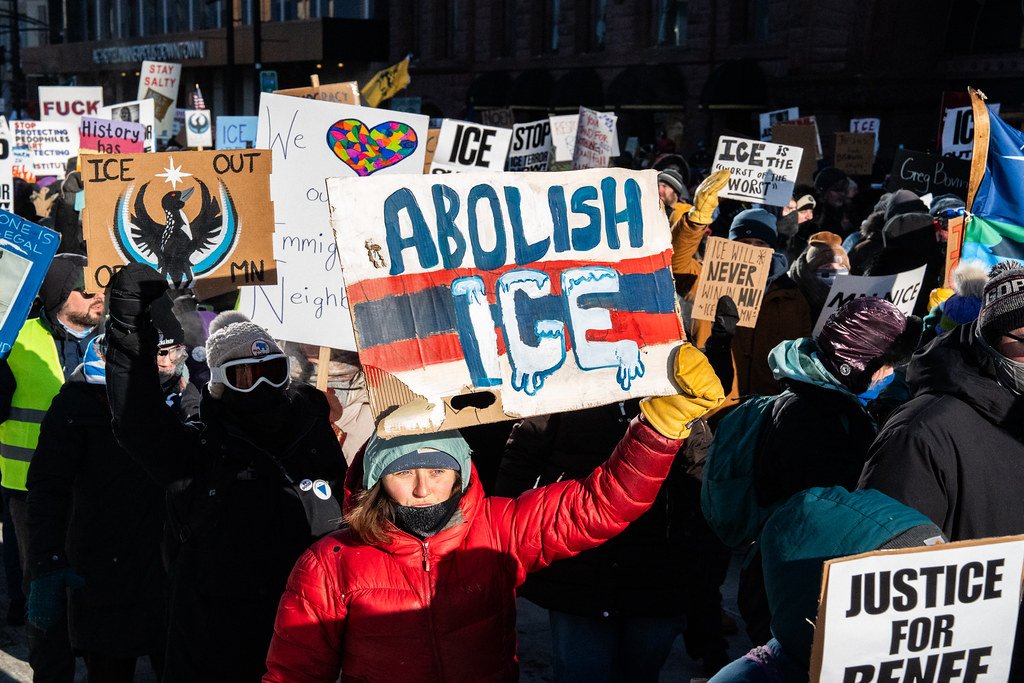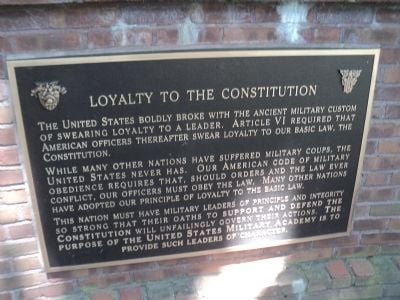Endless War Watch, Winter 2017
I thought it would be interesting, even amidst all the pressing immediacy of day-to-day emergency, to step back and ask where we now are in the post-9/11 struggles over America’s national security and surveillance state.
I thought it would be interesting, even amidst all the pressing immediacy of day-to-day emergency, to step back and ask where we now are in the post-9/11 struggles over America’s national security and surveillance state.
“Conservatives” and “liberals” in national security law have been in a minuet ever since the planes struck the towers, adjusting themselves to one another’s claims as much as to the real world, always with an eye to defending the propriety of their legacies and not just to anticipating an unknown future. No one should understate their good-faith attempt to do their moral best in a confusing world with its shocking events. But no one should neglect their political frameworks, strategic action, and professional angling either. (I am calling them liberals and conservatives for shorthand but it is not necessarily the case that this description of the split in the national security law community maps cleanly on onto every member of each crew or each of his or her commitments.)
Conservatives spent Barack Obama’s presidency insisting that it was no surprise that his national security policies were so continuous with the ones he inherited. True, all the president’s men may have gone to the dark side in the moment of opportunity and threat of the first years of the global war on terror. But then George W. Bush’s lawyers reset things, bringing the war onto a legal footing under prodding from civil libertarians, whose main contribution has been to provide legitimacy to the war on terror. And Barack Obama, some largely symbolic acts aside, hewed to their wisdom. These conservatives were aghast mainly when liberals claimed to take too much credit for imposing moral limits, disguising how fundamentally they preached the same wisdom as their Bush-era predecessors. Liberals might have liked to give themselves the compliment of achieving “just security,” but they were not fundamentally different from those conservatives who long since resolved to make “hard national security choices” with difficult tradeoffs, global justice premised on global violence, and lots of people to snoop on and—with surprising regularity—to execute.
Liberals, however, did not embrace this conclusion. But as time passed, the main imperative was not just to insist on the supposedly massive daylight between Bush and Obama in order to bask in it. For conservatives (along with one or two mischievous left-wingers) charged with tiresome glee that Obama went beyond preserving the war on terror; he in fact expanded it in devising a new form of light footprint conflict. Even this concept was, strictly speaking, a misnomer given that there were fewer and fewer boots on the ground, in a war epitomized by drones across the long Middle Eastern horizon or, in the case of Yemen, secretly outsourced campaigns. In the face of a peace-prize-winning wartime president, cognitive dissonance set in. Liberals were placed in the difficult position of looking up to the president, a moral icon who often played more fast and loose with the law in light of America’s interests than his predecessor had in simply breaking it. In particular, limits imposed by the international law governing the use of force and domestic law allocating war powers—constitutional and statutory—were treated as malleable enough not to impose true constraints. New doctrines presented as reflecting allegedly age-old practice were cited to justify intervention against states that were proving the source of threats. Obama humanized how the war was fought, but expanded it in time and space.
With Hillary Clinton’s victory in prospect, conservatives girded themselves for another spell of making the same charges of hypocrisy as all of the Democratic president’s men and women had invited. The truth was that conservatives might have fought the war on terror the same way, and offered similar “legal” arguments; their game was both to take credit for the basic picture and to tweak their liberal opposite numbers for the pretense of taking the moral high ground when in reality they had learned the lesson that policing the globe sometimes requires unclean hands. As for liberals, they nervously prepared for a president who might well require the same partisan allegiance, if with perhaps a bit less enthusiasm given her penchant for militarism and a charisma that, while impressive, was not going to invite as much rapt admiration as that of her predecessor.
Then Trump won.
We are seeing things scrambled in a variety of ways. Trump behaved erratically from the first. Initially conservatives responded to type, appalled at the unending “virtue signaling” of those to their left, insisting that if everything is an immediate emergency nothing is, and reminding their audience that liberals were as subject to “libertarian panic” as conservatives sometimes were to “security panic.” Following their script, even the Executive Order interpreted as banning Muslims troubled only a few conservatives, with others warning that it was more important to wait and see what it meant. Some boys wanted to make sure not to cry wolf. Then Trump escalated his defense of the executive order in tweets that seemed to portend threats to the rule of law—in particular, by challenging judicial independence.
It was a remarkable moment. On this blog, Ben Wittes had already acknowledged that this national security-friendly space was suddenly in the novel position of advertising the dangers of the national security state, bringing to the surface commitments the demand for just security that normally remained implicit. But then, in a crystallizing forty-eight hours, others rallied to his position. Whatever the excess of liberal fears of emergency, it turned out that Trump’s own excess requires the imposition of limits. What if, Jack Goldsmith asked, the shoddiness of the executive order was deliberately planned as a ruse to distract from a dark agenda? What Reichstag fire would provide an opportunity to scuttle democracy in our time?
Across these two days, four scholars notorious for expansive views of executive power—humorously dubbed the four horsemen by their chorus of longstanding critics in the faculty hallway—embraced a vision of the executive rebound. Eric Posner—who had previously viewed public opinion as the sole real and entirely sufficient bulwark against overweening executive power—now rose in angry criticism of Trump’s intemperate abuse of the judicial role. Like Posner, fabled defender of torture John Yoo took to the op-ed page of the New York Times to insist on limits in the face of “executive power run amok.” Goldsmith, who had long stood out in the stable for acknowledging and endorsing a complex ecology of limitation of executive power, authored the much-noted post on this site worrying about Trump’s endgame. Even the greatest holdout among the four, Adrian Vermeule (like Goldsmith, a treasured colleague), agreed on Twitter that there might actually be cause for alarm—marking the one time he took a break from his regular tweeting castigating liberals for their anxieties, and still irritated by liberal “melodrama.”
The horsemen had now seen hints of apocalypse—and they blinked.
Liberals may watch this with some Schadenfreude. If, in the face of the populist charlatan, the four horsemen themselves are communing with their inner liberal and making explicit their hitherto implicit reservation that despotic power requires limits (even ones drawn by judges), then is there anything left to do besides declare victory? When conservatives embrace the constraint of executive authority, isn’t it only fair for liberals to enjoy the same kind of knowing laugh that conservatives did when liberals embraced the national security and surveillance state?
But that self-serving stance is premature. After all, it is mainly because liberals failed just as much as conservatives in constraining expansive war—even if they made it more humane—that the threats under the new president are so grave. Can liberals take solace in the fact that they imposed limits through “policy guidance” rather than entrenching it in law to keep future presidents—including ones of unpredictable malice—from going awry? Can they take solace in the fact that their destruction of the War Powers Resolution seemed like it was for a good cause if it sets a precedent for a madman? Can they take solace in the fact that congressional abstention and intransigence justified infinite elasticity to authorizations for the use of military force for a different purpose if it turns out to be a warrant for more horrifying expansions than they would ever have contemplated? And when it is Trumpified, who knows where the newfangled doctrine of a right to resort to force in the territory of an unconsenting state, so long as it is unwilling and/or unwilling to control terrorists, will lead?
So nobody is off the hook—just the contrary. In particular, it would be very premature to allow liberals to celebrate the fact that conservatives have had a rude awakening into the need for limits.
In fact, it is possible that the national security arena in the age of Trump holds not a few silver linings for those who believe that it was both conservatives and liberals before Trump who laid the groundwork for a number of the abuses of executive power and military hegemony that we are seeing and that are likely to become only more spectacular.
For one thing, Yemen has threatened to withdraw its consent for American military operations in its territory after Trump’s first operation went so badly—underlining the value of political sovereignty in a world of great power agendas and showing that it is becoming very difficult to trust America to make the Middle East a better place in the age of endless war. And the prospect that Trump may transfer ISIL detainees to Gitmo may mean, since someone will have standing to make the argument in federal court, that expansions of the war under domestic law that were unjustifiable all along will get a hard look from federal judiciary. Even though the judiciary has mostly sat out the war, just like the legislature, the national security community is now treating it as heroic and indispensable. But if we are going to celebrate the judiciary, we also have to decide whether we want it to take seriously legal constraints the duration and scope of the war on terror set aside or interpreted away to date.
It is even possible that the case against endless war will finally get a hearing as it becomes clearer every day what conservatives and liberals enabled under a new president whom neither side expected. There is zero reason to think Trump will finally bring endless war to an end. But there is every reason to believe that he may undermine its legitimacy, so long sustained by conservatives and liberals alike.


.png?sfvrsn=48e6afb0_5)


